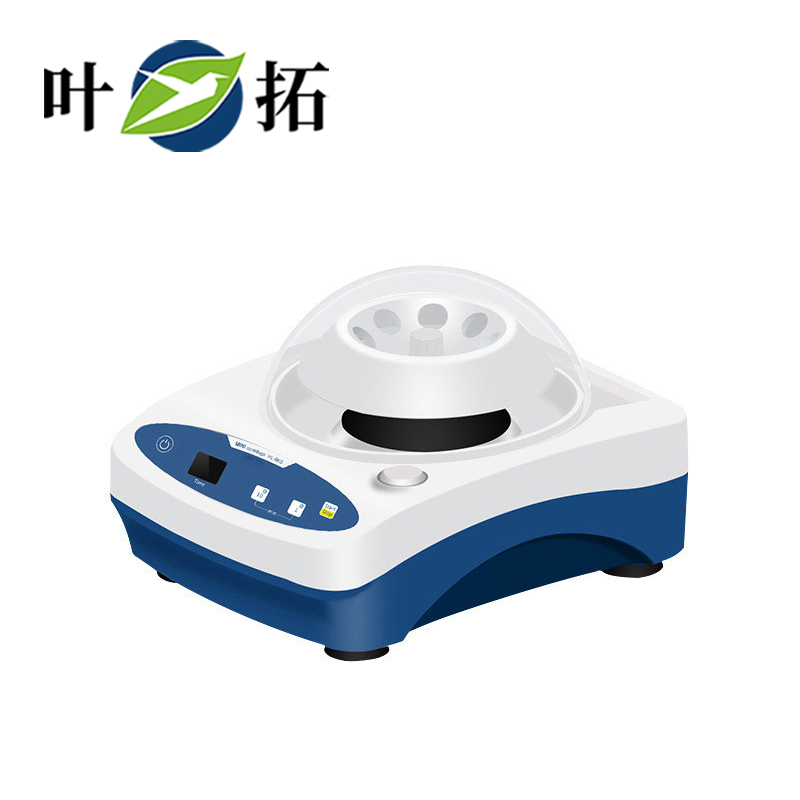Micro handheld centrifuge is a small centrifuge commonly used for separating components such as cells, proteins, DNA, RNA, etc. from liquid mixtures. It has the following characteristics:
Small design: Micro handheld centrifuges are usually very compact and can be easily placed on laboratory countertops, occupying very little space.
Low capacity: These centrifuges typically have smaller capacities and are suitable for processing trace samples, typically ranging from 1.5 milliliters to 2 milliliters.
High speed rotation: Despite their small size, miniature handheld centrifuges are typically able to rotate at high speeds, typically up to thousands of revolutions per minute (RPM), to separate samples.
Rapid separation: Due to high-speed rotation, these centrifuges are able to quickly separate the components in the sample, typically within a few minutes.
Portability: Micro handheld centrifuges are usually very lightweight, easy to carry and move, and suitable for on-site experiments or field research.
Battery or plug-in power supply: Some miniature handheld centrifuges can be powered by batteries, while others require plug-in power supply.
Multi functional: Despite their small size, some miniature handheld centrifuges have multiple speed and time settings to meet different separation needs.
Wide application: Micro handheld centrifuges are widely used in biochemistry, molecular biology, biomedical research, molecular diagnosis and other fields, for sample preparation, cell separation, sample processing before gel electrophoresis and other tasks.
Cost effectiveness: Due to its small size and relatively low capacity, micro handheld centrifuges typically have lower prices and are an affordable choice for many laboratories.
Easy to operate: Micro handheld centrifuges are usually very easy to operate and suitable for users of various skill levels.
In summary, the Shanghai Yetuo Micro Palm Centrifuge is a small and portable laboratory equipment suitable for processing trace samples and rapidly separating components in mixtures. They play important roles in microbiology, molecular biology, clinical laboratories, and many other fields.


 Alibaba Store
Alibaba Store Tmall Store
Tmall Store Jingdong Sstore
Jingdong Sstore







